I lived without my Galaxy S5 smartphone for 2 weeks: here's how my life changed
This article may contain personal views and opinion from the author.
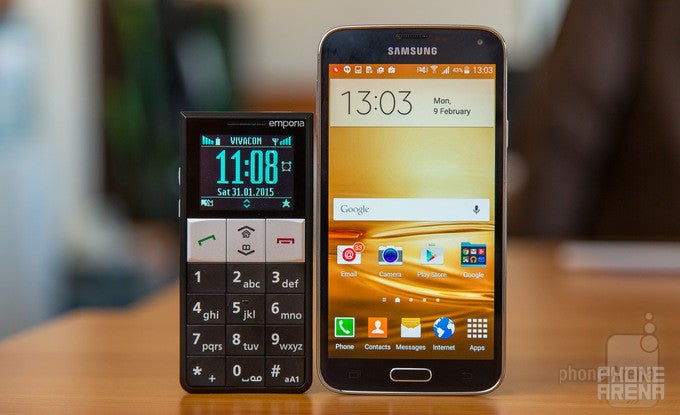
For as long as I can remember, I've been fascinated by science, technology, and electronics. I must have been 5 when I took apart a record player just to see how it worked, I could use a soldering iron by the age of 12, and at 15, I knew my way around a computer well enough to write basic code. Today, I'm surrounded by electronic gadgets both at home and, of course, at the office. My work as part of the PhoneArena writers team has allowed me to get my hands on tens, if not hundreds of smartphones and tablets over the years, and many of them I've tested for extensive periods of time. Currently, my personal phone is a Samsung Galaxy S5, which I use primarily for taking photos, watching video, streaming music, accessing the web and social networks, chatting with friends and family, and making the occasional phone call.
Yet as dependent on my smartphone as I am, I've long been wondering what it would feel like to live without one and whether I had not become overly attached to mine. Hence I volunteered to temporarily swap my Galaxy S5 for a phone without apps, without games, and without any access to the internet. These two weeks of "abstinence" yielded the flurry of positive and negative experiences which I'll share with you in the paragraphs below.
Humans are creatures of habit

Many daily activities didn't feel quite the same without a smartphone on me
This feeling of nervousness, surely caused by the fact that I didn't have a smartphone on me, stuck around during the first few days of my experiment. While it didn't make me lose my mind, it made it clear for me to see how my smartphone had shaped my behavior. Whenever I heard someone else's phone beep, I instinctively looked at mine as well. Furthermore, I could feel a persistent urge to check the weather, to read the latest headlines, to go on a particularly distracting website that I rather not mention (hint: its name starts with a digit), all because my brain was used to be constantly stimulated with information.
The bliss of not having a smartphone
Several days into my experiment, I could feel I was already adapting to this new and unusual smartphone-less lifestyle. In fact, I was starting to notice the pros of breaking my constant connection to the internet, such as the fact that the gizmo in my pocket wasn't beeping every 7 minutes. It turned out my smartphone was a distraction greater than I thought. Without it drawing my attention, without the temptation to waste time by playing a game or going online, I felt more productive both at home and at work. My generally terrible attention span was steadily improving.
Having no smartphone also meant that I had less to worry about. I didn't have to treat my phone like a baby, as I usually do, because my basic handset was cheap and durable – unlike the Galaxy S5, it didn't have a large and fragile display in its front. Besides, my dumb phone had a pretty decent battery life, so forgetting to plug it in before bedtime wasn't a big deal.
Furthermore, I noticed that I was no longer getting phantom vibrations. If you don't know what these are, imagine feeling your phone vibrating inside your pocket when it actually isn't; most heavy smartphone users get them every once in a while. I'm guessing my phantom buzzings disappeared because my basic phone was vibrating much less often than my smartphone since it could receive nothing beyond texts and calls Therefore, my brain was not under this constant anticipation of a vibe caused by an incoming email or instant message.
We take smartphones for granted
While I could feel the positive effects of not having a smartphone, I was also missing the convenience of having one. I realized how many features and functions I've been taking for granted all along, which only reconfirms the age-old saying that we don't appreciate what we have until it's gone. Without a smartphone, I couldn't take down notes and set reminders as easily as before, I had to listen to the boring radio instead of streaming whatever I wanted over Spotify, I was struggling with texting on a keypad, I had to ask others to google things for me, I was missing the the quick and easy communication with friends from all over the world. Simply put, what I want to point out is that a smartphone is a tiny miracle. Any spoiled brat who thinks that their smartphone sucks needs to be reminded of all the functionality it bring to their fingertips.
There was one thing in particular I was missing a lot – my Galaxy S5's camera. I love taking photos, and my smartphone is the primary tool I use for the purpose, but without it, I missed quite a few opportunities to snap a great shot. This made me take out my dusty point-and-shoot camera and carry it around, just in case I needed it. Needless to say, carrying around a dedicated device simply for taking a quick picture wasn't convenient, which is yet another reason to appreciate smartphones even more.
Conclusion
Smartphones are fun and functional, there's no denying that, but their heavy use can lead to undesirable consequences. They are highly distracting, they might mess up one's health, and they're great at ruining social interactions. Still, I'm convinced that they do much less harm than good when not abused. That's why I definitely don't want to sound like I'm preaching how we should all ditch our smartphones. Instead, I think we should do our best to use them with moderation – to find that sweet spot where we're reaping the benefits of having a smartphone without becoming overly attached to it. And if you're also feeling too hooked on your smartphone like I was, try putting it down for a day or two or mute its notifications every once in a while. Go out, meet more people and don't use your phone when it isn't appropriate. Don't take photos of every meal and every drink – shoot less, enjoy more. And seriously, stay away from addicting games and time-wasting web sites. You'll thank me later.

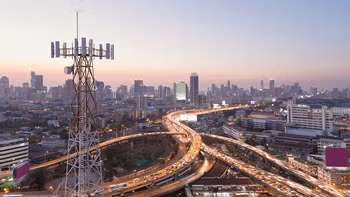





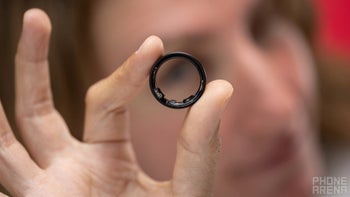


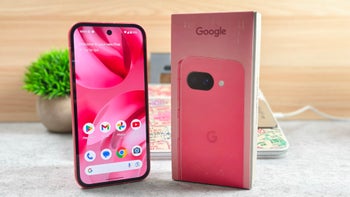

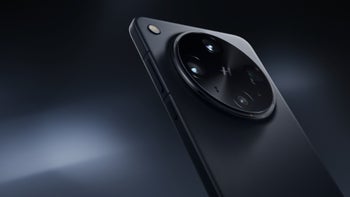
Things that are NOT allowed: